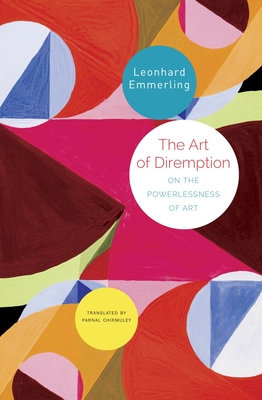The Art of Diremption: On the Powerlessness of Art

The Art of Diremption: On the Powerlessness of Art
An engaging exploration of the meaning and power of art that looks at popular theories through the ages. One of the most astonishing aspects of the discourse on contemporary art is the firm and unwavering belief that art has the power to transform society for the better. There seems to be a consensus around the idea that art, especially visual art, is greatly suited to addressing all manner of social, political, economic, ecological, and other imbalances. Celebrated as a powerful remedy for social grievances, art finds its justification in the service it seems to provide to society. But as art historian Leonhard Emmerling contends in this timely volume, this presumptuous heroism shows willful blindness towards art's subjugation to contradictions inherent in social relations. He argues that the narrative of the power of art has its specific history. In trying to reconstruct this history in Art of Diremption, he discovers instead art's fundamental powerlessness as the foundation for art's political relevance. Art is weak, argues Emmerling. It, therefore, requires an ethics of weakness, which rejects the discourse of impact and power to enable a politics of art containing the permanence of reflection, the unreliability of thought, and the emergence of form as the event of the new. With a meticulously studied and well-argued case about the "powerlessness of art," Art of Diremption will be an important contribution to the field of art, aesthetics, and philosophy.
PRP: 161.91 Lei
Acesta este Prețul Recomandat de Producător. Prețul de vânzare al produsului este afișat mai jos.
145.72Lei
145.72Lei
161.91 LeiLivrare in 2-4 saptamani
Descrierea produsului
An engaging exploration of the meaning and power of art that looks at popular theories through the ages. One of the most astonishing aspects of the discourse on contemporary art is the firm and unwavering belief that art has the power to transform society for the better. There seems to be a consensus around the idea that art, especially visual art, is greatly suited to addressing all manner of social, political, economic, ecological, and other imbalances. Celebrated as a powerful remedy for social grievances, art finds its justification in the service it seems to provide to society. But as art historian Leonhard Emmerling contends in this timely volume, this presumptuous heroism shows willful blindness towards art's subjugation to contradictions inherent in social relations. He argues that the narrative of the power of art has its specific history. In trying to reconstruct this history in Art of Diremption, he discovers instead art's fundamental powerlessness as the foundation for art's political relevance. Art is weak, argues Emmerling. It, therefore, requires an ethics of weakness, which rejects the discourse of impact and power to enable a politics of art containing the permanence of reflection, the unreliability of thought, and the emergence of form as the event of the new. With a meticulously studied and well-argued case about the "powerlessness of art," Art of Diremption will be an important contribution to the field of art, aesthetics, and philosophy.
Detaliile produsului










